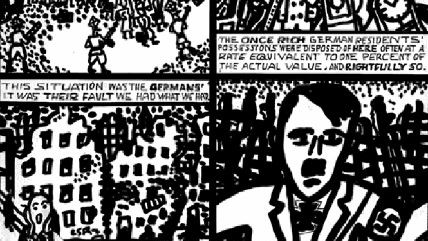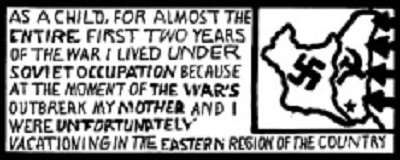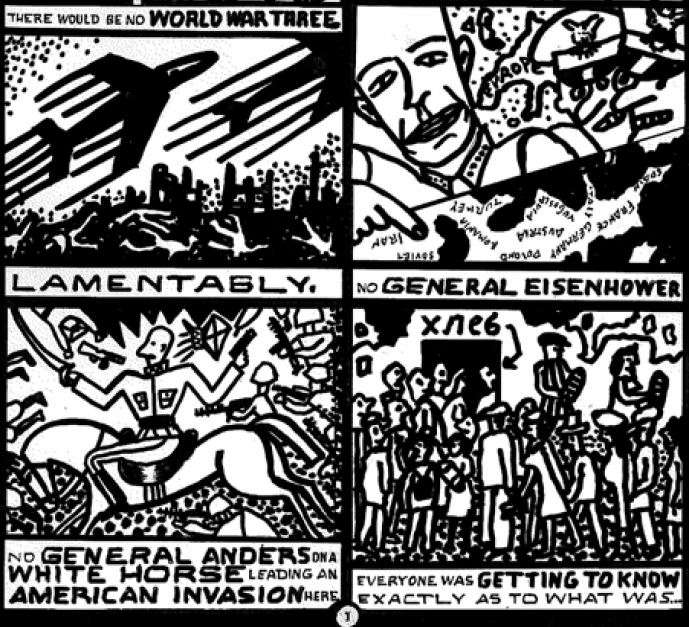World War II Started 75 Years Ago Today, Still Shaping Foreign Policy


Seventy-five years ago today, Nazi Germany invaded Poland, kicking off World War II in Europe. Two weeks later, the Soviet Union would join and invade Poland too. In 1941, Adolf Hitler would turn on the Soviet Union, driving that country to the Allied powers. Today, Russia, the successor state to the Soviet Union, still uses its role in the latter part of World War II to frame its wider foreign policy. Putin once said World War II gave Russia a "great moral right" to a "security strengthening" foreign policy because of the Soviet Union's role in defeating Nazi Germany.
In the United States, meanwhile, politicians don't tend to invoke World War II in the same way. Nevertheless, America's role in World War II (which began in December 1941 after the Japanese attack on Pearl Harbor), for better or worse, also shapes America's foreign policy today. Its commitments to the United Nations, and to the North Atlantic Treaty Organization (NATO), are directly linked to World War II. Those commitments haven't been revisited even though the war ended nearly 70 years ago.

NATO may have been useful during the Cold War, too, but the Soviet Union collapsed 25 years ago. Since then, NATO's been used to enrich Western military interventions in places like Kosovo and Libya, the latter of which has contributed to a deteriorating security situaiton in North Africa and the Middle East, but hasn't appeared necessary as a strictly self-defense alliance. Recent events in Ukraine, where Russia, NATO's historical nemesis, has seized Crimea and generally treated Ukraine's sovereignty as optional while operating in and near the country, have led NATO to announce the creation of a "rapid response force." Yet while Russia's actions in Ukraine may threaten the interest of the European Union, they have nothing to do with the security of any NATO country. Ukraine has warned that its conflict with Russia could be the biggest since World War II, but several months into the crisis it continues to directly involve only two countries, Ukraine and Russia.
The notion that the U.S. "ought" to be concerned about Russia in Ukraine isn't based on any contemporary political configuration but on the legacy of World War II (which happened to start when an aggressive country began seizing land it said its countrymen lived in) and the Cold War that followed. So the United States' commitment in 1941 to defeat Japan, which attacked it, and its allies Germany and Italy, has led to Europe, which was on the verge of being overwhelmed by the Nazis before the U.S. entered World War II, to continue to rely on American military power and expenditures to advances its own agendas. It's an arrangement that ought to have been revisited decades ago. More than 100,000 U.S. troops remain in Germany and Italy.

World War II didn't just have a lasting impact on international politics, it had a profound effect on the people who lived through it, as all wars do. My 81-year-old dad, whose novel about life in post-war Poland we adapted into a graphic novel about jazz, sex, money, and dodging the American draft, talks about World War II every day. He spent the first two years of the war living under Soviet occupation. You can download the first two issues free here.
When the United States and its allies, including the Soviet Union, won World War II those people living in areas "liberated" by the Soviet Union lost. The countries of the eastern bloc spent the next 40+ years under communist rule if not occupation. None of them were communist before World War II, and a number, like Poland, had been invaded by the Soviet Union when it was allied with the Nazis. One of the unintended consequences of World War II was the burden of a half century of communism over half of Europe.
I uploaded a six-page selection from the third issue of Skyliner about "War Criminals" that illustrates what some of the aftermath of World War II looked like in places like Poland. You can check out the pages here.
As you may or may not know, last week I launched a Kickstarter to print Skyliner as a graphic novel. You can check that out here and watch the video with my dad below:


Show Comments (104)